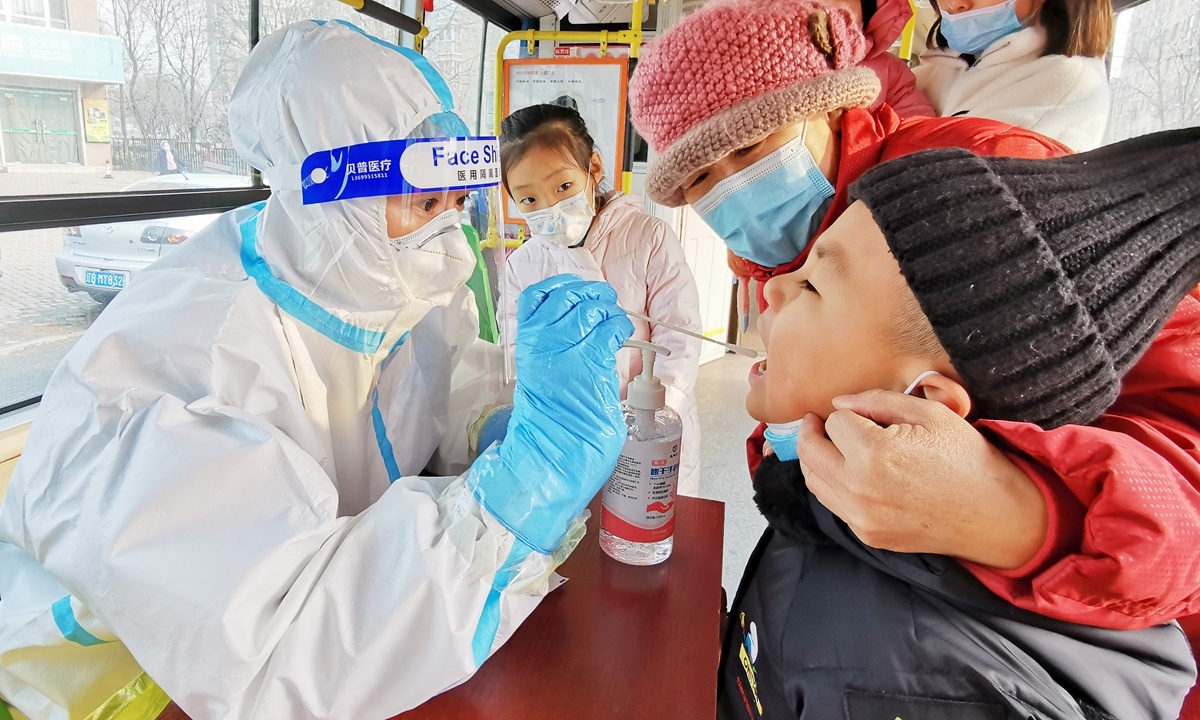
A medical worker conducts a nucleic acid test on a boy in Dalian, Northeast China's Liaoning Province on Wednesday. Dalian launched a citywide testing on Tuesday in response to a resurgence of COVID-19. On Wednesday, one new confirmed case and eight asymptomatic patients were reported in the city. (Photo: VCG)
Northeast China's Liaoning Province is cancelling all large gatherings, including banquets and training sessions, ahead of the coming New Year's Day and Spring Festival holidays, after some cities in the province entered "wartime mode" in response to a resurgence of COVID-19 infections.
A new round of cases emerged in the coastal city of Dalian on December 15, when four asymptomatic patients were reported. On Wednesday, one new confirmed case and eight asymptomatic patients were reported in the city.
The city entered "wartime mode" on Sunday and rolled out three-day citywide COVID-19 nucleic acid tests on Tuesday.
To control the spread of the virus, Liaoning Province on Wednesday ordered a halt to all group gatherings and large-scale greeting events, get-togethers, dinners and training activities.
Commercial venues such as shopping malls, supermarkets and bazaars have to limit the flow of people, and customers are advised to electronic check-out service to shorten waiting time.
At catering venues, disposable tableware and public chopsticks and spoons are recommended.
All entertainment galas and concerts must be pre- recorded for broadcast, and the number of people present must be appropriately controlled. In principle, the number of spectators at such venues shall not exceed 75 percent of the total seats.
Liaoning's capital city Shenyang entered "wartime mode" and initiated its emergency response for COVID-19 on Wednesday after a patient who returned from South Korea and finished her quarantine on December 13 tested positive for the coronavirus.
So far, 71 close contacts and 69 secondary close contacts of the patient have been put under quarantine and taken nucleic acid tests.
Zhou Zijun, a professor at the Peking University's School of Public Health, told the Global Times on Wednesday that such strict epidemic prevention and control measures are necessary under the current circumstances. Zhou suggested unnecessary cross-provincial trips should be avoided during the coming festivals.
In order to calm the public, Yang Zhanqiu, deputy director of the pathogen biology department at Wuhan University, told the Global Times that some sporadic cases resurging in some areas are normal and in line with the development of an epidemic. Sporadic local cases and imported infections just mean imperfect work in some links of the prevention effort, which is a warning to the normalized anti-epidemic work.


